Related Research Articles
Osteopathic medicine is a branch of the medical profession in the United States that promotes the practice of science-based medicine, often referred to in this context as allopathic medicine, with a set of philosophy and principles set by its earlier form, osteopathy. Osteopathic physicians (DOs) are graduates of American osteopathic medical colleges and are licensed to practice the full scope of medicine and surgery in all 50 U.S. states. The field is distinct from osteopathic practices offered in nations outside of the U.S.—in which practitioners are generally considered neither parts of core medical staff nor of medicine itself; rather, they are considered alternative medicine practitioners. The other major branch of medicine in the United States is referred to by practitioners of osteopathic medicine as allopathic medicine.

Oklahoma State University Center for Health Sciences (OSU-CHS) is a public medical school in Tulsa, Oklahoma. It also has a branch campus in Tahlequah, Oklahoma. Founded in 1972, OSU-CHS is part of the Oklahoma State University System. OSU-CHS offers a Doctor of Osteopathic Medicine (D.O.) and over fifteen other different graduate degrees.

Rebecca Lee Crumpler, born Rebecca Davis,, was an American physician, nurse and author. After studying at the New England Female Medical College, in 1864 she became the first African American woman to become a doctor of medicine in the United States. Crumpler was also one of the first female physician authors in the nineteenth century. In 1883, she published A Book of Medical Discourses. The book has two parts that cover the prevention and cure of infantile bowel complaints, and the life and growth of human beings. Dedicated to nurses and mothers, it focuses on maternal and pediatric medical care and was among the first publications written by an African American on the subject of medicine.

Bernadine Patricia Healy was an American cardiologist and the first female director of the National Institutes of Health (NIH).

Nova Southeastern University Dr. Kiran C. Patel College of Osteopathic Medicine (NSU-KPCOM) is a private medical school in Davie, Florida. It is an academic division of Nova Southeastern University. The college was founded in 1981 as the only osteopathic medical school located in the Southeastern United States at the time. It confers the Doctor of Osteopathic Medicine degree and is accredited by the American Osteopathic Association's Commission on Osteopathic College Accreditation.
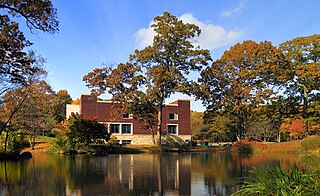
The New York Institute of Technology College of Osteopathic Medicine (NYIT-COM) is a private medical school located primarily in Old Westbury, New York. It also has a degree-granting campus in Jonesboro, Arkansas. Founded in 1977, NYIT-COM is an academic division of the New York Institute of Technology. Formerly the New York College of Osteopathic Medicine, it is one of the largest medical schools in the United States. As of 2023, the NYIT College of Osteopathic Medicine has a 100 percent match rate, with all members of the Class of 2023 placed into residencies, and U.S. News & World Report ranks the NYIT College of Osteopathic Medicine #49 among medical schools in the United States with the most graduates practicing primary care.
A.T. Still University (ATSU) is a private medical school based in Kirksville, Missouri, with a second campus in Arizona and third campus in Santa Maria, California. It was founded in 1892 by Andrew Taylor Still and was the world's first osteopathic medical school. It is accredited by the Higher Learning Commission. ATSU includes three campuses on 200 acres with seven schools and colleges.
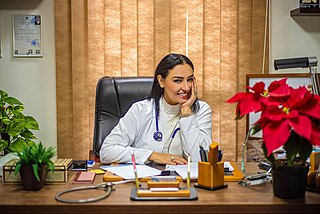
The presence of women in medicine, particularly in the practicing fields of surgery and as physicians, has been traced to the earliest of history. Women have historically had lower participation levels in medical fields compared to men with occupancy rates varying by race, socioeconomic status, and geography.
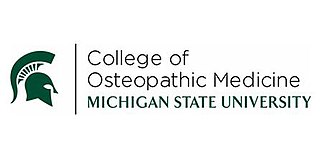
The Michigan State University College of Osteopathic Medicine (MSUCOM) is one of the two public medical schools of Michigan State University, a public land-grant research university in East Lansing, Michigan. The college grants the Doctor of Osteopathic Medicine (D.O.) degree, as well as a DO-PhD combined degree for students interested in training as physician-scientists. MSUCOM operates two satellite campuses in Clinton Township and Detroit. The college is accredited by the American Osteopathic Association's Commission on Osteopathic College Accreditation (COCA) and by the Higher Learning Commission.
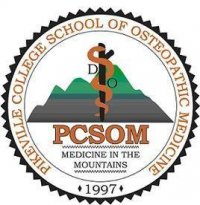
The University of Pikeville - Kentucky College of Osteopathic Medicine (UP-KYCOM) is the medical school of University of Pikeville, a private university affiliated with the Presbyterian Church (USA) and located in Pikeville, Kentucky. UP-KYCOM was established in 1997, grants the Doctor of Osteopathic Medicine degree. It is accredited by the Commission on Osteopathic College Accreditation (COCA) and the Commission on Colleges of the Southern Association of Colleges and Schools.

The College of Osteopathic Medicine of the Pacific (COMP) is a private, non-profit medical school for osteopathic medicine located in downtown Pomona, in the U.S. state of California. The college opened in 1977 as the only osteopathic medical school west of the Rocky Mountains. COMP was the founding program of Western University of Health Sciences (WesternU), which now has 8 colleges in addition to COMP, each offering professional degrees in various fields of healthcare. COMP has a single 4-year program, conferring the Doctor of Osteopathic Medicine (D.O.) degree. Graduates are eligible to practice medicine in all 50 states and more than 85 countries.

The Heritage College of Osteopathic Medicine (OU-HCOM) is the medical school of Ohio University and the only osteopathic medical school in the U.S. state of Ohio. Its mission is to emphasize the practice of primary care and train physicians to serve Ohio, especially in the underserved Appalachian and urban areas of the state.
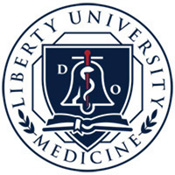
Liberty University College of Osteopathic Medicine (LUCOM) is a private graduate medical school located in Lynchburg, Virginia. It is one of the seventeen colleges and schools located in Liberty University. LUCOM was the second osteopathic medical school to open in the U.S. state of Virginia after the Edward Via College of Osteopathic Medicine. In 2018, the inaugural class of 126 medical students graduated.
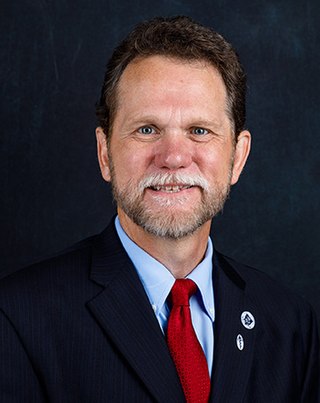
Peter Alan Bell, DO, MBA, FACOEP-dist, FACEP is an American osteopathic physician. He is the current Vice Provost and Dean at Baptist College of Health Sciences, now known as Baptist Health Sciences University in Memphis, TN. Additionally, Bell is nationally known for his continued work on health policy reform and the impact of health policy on the medical profession. Finally, Bell has served as president of the Ohio Osteopathic Association (OOA) and the National President of The American College of Osteopathic Emergency Physicians (ACOEP).
Miriam Rossi was emeritus professor of pediatrics at the University of Toronto, and a pediatrician in the division of Adolescent Medicine at the Hospital for Sick Children. She was Associate Dean of Student Affairs & Admissions at the University of Toronto's Faculty of Medicine for 13 years. Rossi is best known for her contributions to diversity and health equity in undergraduate medical education.
Valerie Montgomery Rice is an American obstetrician, gynecologist, and college administrator. She is the president and dean of Morehouse School of Medicine.
Reshma Kewalramani, is the president and chief executive officer of Vertex Pharmaceuticals, a biotechnology company based in Boston, Massachusetts, as of April 1, 2020. She is the first female CEO of a large US biotech company. She was previously the chief medical officer and vice president of global medicines development and medical affairs at Vertex.

Kayse Marie Shrum is an American physician and the President of Oklahoma State University. She is the first woman to lead a public research institution in Oklahoma. She was selected as OSU's 19th president in April 2021 and took office on July 1, 2021.
References
- 1 2 3 4 5 6 7 "Changing the Face of Medicine | Dr. Barbara Ross-Lee". www.nlm.nih.gov. Retrieved 2020-08-23.
 This article incorporates text from this source, which is in the public domain .
This article incorporates text from this source, which is in the public domain . - 1 2 3 Chandler, D. L. (2015-11-18). "Little Known Black History Fact: Dr. Barbara Ross-Lee". Black America Web. Retrieved 2016-03-07.
- ↑ "Ross–Lee, Barbara". encyclopedia.com. Retrieved 2016-03-07.
- ↑ "Dr. Barbara Ross-Lee". The MY HERO Project. Retrieved 2020-08-22.
- 1 2 "Dr. Barbara Ross-Lee's Biography". The HistoryMakers. Retrieved 2019-04-26.
- 1 2 3 4 5 "Ross–Lee, Barbara | Encyclopedia.com". www.encyclopedia.com. Retrieved 2019-04-26.
- ↑ "Meet Diana Ross' Sister, Groundbreaking Doctor Barbara Ross-Lee! | BlackDoctor.org - Where Wellness & Culture Connect". BlackDoctor.org. 2018-12-09. Retrieved 2020-08-22.
- 1 2 Fischler, Marcelle S. (2002-02-10). "LONG ISLAND JOURNAL; Diana Ross's Sister Tops Charts in Medicine". The New York Times. ISSN 0362-4331 . Retrieved 2016-03-07.
- 1 2 "Ross–Lee, Barbara". Contemporary Black Biography. Retrieved 2016-03-07.
- ↑ "40 Things to Know: Our college was led by the first female African American dean of a medical school | Ohio University". www.ohio.edu. Retrieved 2020-05-20.
- ↑ Seifer, S; Kahn, J (May 1994). "Preparing future physicians as health policy leaders". Academic Medicine. 69 (5): 410. doi: 10.1097/00001888-199405000-00022 . ISSN 1040-2446. PMID 8086050.
- ↑ "15 largest osteopathic medical schools in America". www.beckershospitalreview.com. Retrieved 2020-08-22.
- ↑ "Osteopathic Schools Ranked by MCAT". www.atsu.edu. Retrieved 2020-08-22.
- ↑ "Barbara Ross-Lee, Osteopathic Medicine Pioneer and Visionary, Announces Retirement | News Releases | NYIT". www.nyit.edu. 2017-04-24. Retrieved 2020-08-22.
- ↑ American Osteopathic Association (2009), "Physicians, Osteopathic", in Mullner, Ross M. (ed.), Encyclopedia of Health Services Research, Thousand Oaks, California: SAGE, doi:10.4135/9781412971942.n321, ISBN 978-1-4129-5179-1
- ↑ "Faculty". Physician Moms Group. Retrieved 2020-08-22.
- ↑ Aamot, Gregg (2019-07-08). "Gaylord sees transformation in proposed osteopathic medical school". MinnPost. Retrieved 2020-08-22.
- ↑ Arola, Brian. "Proposed Gaylord medical school nears construction". Mankato Free Press. Retrieved 2020-08-22.
- ↑ Olson, Jeremy (2018-11-21). "Osteopathic school still planned for rural Minnesota". Star Tribune. Retrieved 2020-08-22.
- ↑ "Plans for osteopathic medical school in Gaylord appear to have fallen through". MinnPost. 2021-07-06. Retrieved 2021-10-16.
- ↑ Booker, Tori. "Proposed KansasCOM". Kansas Health Science Center. Retrieved 2021-10-16.
- ↑ Morgan State University Board of Regents. "Morgan State University Board of Regents Public Session Minutes, 2/1/2022 Meeting" (PDF).